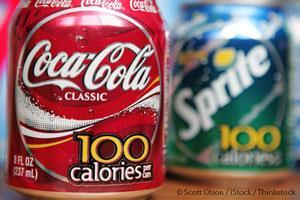What Is Bok Choy Good For?
Author: Ola Thomas | Category: Food Facts, Uncategorized
 Cultivated in China for centuries, bok choy has played a large part not only in its cuisine, but in traditional Chinese medicine. Today, it’s a staple in both Asian and American recipes.
Cultivated in China for centuries, bok choy has played a large part not only in its cuisine, but in traditional Chinese medicine. Today, it’s a staple in both Asian and American recipes.
A deep green leafy vegetable that resembles Romaine lettuce on top and a large celery on the bottom, bok choy is a crucifer more closely related to cabbage. The entire vegetable can be used…
01 May 2015




 It should be obvious that patients need unbiased advice when it comes to making decisions that can impact their health.
It should be obvious that patients need unbiased advice when it comes to making decisions that can impact their health. I’d like to set the record straight regarding pre-workout nutrition. This is a tricky topic that requires a short biological and science overview, so bear with me.
I’d like to set the record straight regarding pre-workout nutrition. This is a tricky topic that requires a short biological and science overview, so bear with me. Have you tried doing standard cardio workouts faithfully, yet found you still haven’t reached your fat loss goals? I believe that interval cardio, is the 30-minute fat loss solution! I have used it almost exclusively for my personal fitness routine for the last 14 years. Most of my clients perform their interval workouts on a treadmill.
Have you tried doing standard cardio workouts faithfully, yet found you still haven’t reached your fat loss goals? I believe that interval cardio, is the 30-minute fat loss solution! I have used it almost exclusively for my personal fitness routine for the last 14 years. Most of my clients perform their interval workouts on a treadmill. From a regulatory perspective, GM crops are considered to be “substantially equivalent” to their non-GM counterparts. This means, that they are essentially the same, with no meaningful differences for your health or the environment.
From a regulatory perspective, GM crops are considered to be “substantially equivalent” to their non-GM counterparts. This means, that they are essentially the same, with no meaningful differences for your health or the environment. If you have planted tomatoes in your garden this year, you may have realized, too late, that you planted more than you need. Late summer is also a perfect time to snag great deals on tomatoes at farmer’s markets, where you may be able to pick up a half-bushel of freshly grown tomatoes for a fraction of the cost at your supermarket.
If you have planted tomatoes in your garden this year, you may have realized, too late, that you planted more than you need. Late summer is also a perfect time to snag great deals on tomatoes at farmer’s markets, where you may be able to pick up a half-bushel of freshly grown tomatoes for a fraction of the cost at your supermarket. Earlier this year, one of the largest and longest studies of mammography to date — involving 90,000 women followed for 25 years — found that mammograms have no impact on breast cancer mortality.
Earlier this year, one of the largest and longest studies of mammography to date — involving 90,000 women followed for 25 years — found that mammograms have no impact on breast cancer mortality.
 Are forgetfulness and “senior moments” inevitable parts of aging? Many medical professionals (including the doctor in CNN’s news brief above) say it’s perfectly normal to start having memory lapses by the time you reach middle age.
Are forgetfulness and “senior moments” inevitable parts of aging? Many medical professionals (including the doctor in CNN’s news brief above) say it’s perfectly normal to start having memory lapses by the time you reach middle age. Experiencing the loss of a loved one takes a heavy toll on your emotional health, but it doesn’t stop there. The extreme stress that results during bereavement affects you physically, too, and can manifest as both chronic disease and acute illness.
Experiencing the loss of a loved one takes a heavy toll on your emotional health, but it doesn’t stop there. The extreme stress that results during bereavement affects you physically, too, and can manifest as both chronic disease and acute illness.